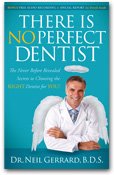Dental hygiene
This is an important issue and one that is easy to do yet many people underestimate the importance of a daily oral hygiene routine.
Following a daily routine means that you are reducing your risk of tooth decay and gum disease as well as ensuring that your teeth remain clean, healthy and attractive looking.
The main aim of a dental hygiene routine is to prevent the build up of a sticky substance called plaque which forms on the surface of the teeth. This substance is created when foods broken down into starches and sugars release this substance.
Plaque takes the form of a sticky film which easily adheres to the teeth. This can be removed by brushing the teeth but it needs to be done on a regular basis. If not then it allows the plaque time to build up no the surface of the tooth where it attacks the hard coating of the tooth (known as enamel).
A build up of plaque leads to other conditions such as periodontitis, gingivitis and tartar.
Dental hygiene routine
A good dental routine should be carried out every day and include the following items/actions:
Each of these is discussed in more detail as individual sections.
A daily dental routine should start from childhood. As soon as children are old enough to use a toothbrush they should be encouraged to do so. The sooner they adopt good habits in regard to their teeth the better.
Toothbrushing and flossing are part of this routine. Other measures include regular check ups with a dentist who may suggest a scale and polish. Restorative treatment such as a crown or filling can also help.
Choose a healthy diet which is high in protein, carbohydrates (starches not sugars) and fibre and low in saturated fat, salt and sugar.
Try to avoid sugary drinks and snacks in between meals. If this is difficult then minimise your intake and switch to fresh fruit instead.
The purpose of dental hygiene
The outcome of this is healthy teeth which are free from tartar and plaque. This will avoid any sense of embarrassment about poorly cared for teeth or conditions such as bad breath.
Caring for your teeth means that your teeth will last longer: this is important in terms of talking, biting, chewing and other similar functions. Plus it also means that you will not feel self conscious about smiling or showing your teeth in public.
It is a simple routine to adopt and can fit into any lifestyle. Doing this means less pain, stress and expense later on.
Dental
Information Guide
- Cosmetic
- Porcelain veneers
- Direct composite veneers
- Cosmetic crowns
- Cosmetic bridges
- Cosmetic fillings
- Direct composite bonding
- Cosmetic orthodontics
- General dentistry
- Dental Fear
- Dental implants
- Endodontic root treatments
- Orthodontics
- Invisible braces
- Fast Acting Braces
- Cosmetic braces
- Conventional orthodontic treatment
- Braces for children
- Tooth decay
- Dental hygiene
- Toothpastes and mouthwash
- Toothbrushing
- Flossing
- Interproximal brushing
- Dental treatment abroad
- Resolving problems
Cosmetic
General dentistry
Dental Fear
Dental implants
Endodontic root treatments
Orthodontics
Tooth decay
Dental hygiene
Latest news
-
Lorem ipsum dolor amet
13 OCT 2010Mauris eros sapien, mollis et varius vitae, mollis id augue...
-
Lorem ipsum dolor amet
13 OCT 2010Mauris eros sapien, mollis et varius vitae, mollis id augue...
-
Lorem ipsum dolor amet
13 OCT 2010Mauris eros sapien, mollis et varius vitae, mollis id augue...
the charity Smile Train
in conjunction with
There is No Perfect Dentist
 Buy The Book
Buy The Book
 Download a
Download a Listen to a
Listen to a  View our
View our